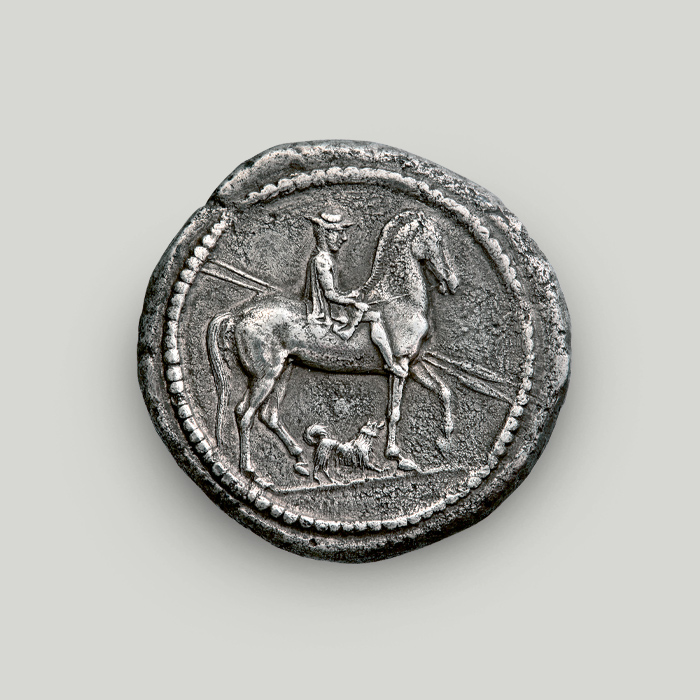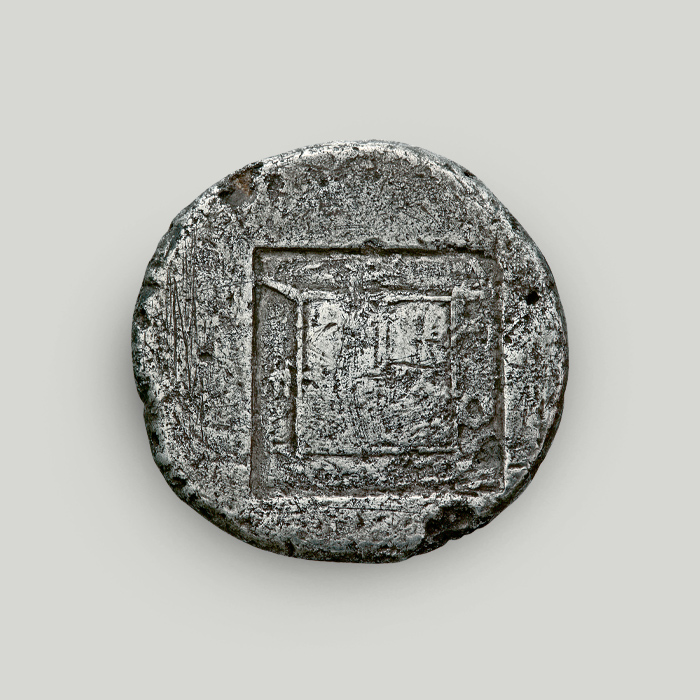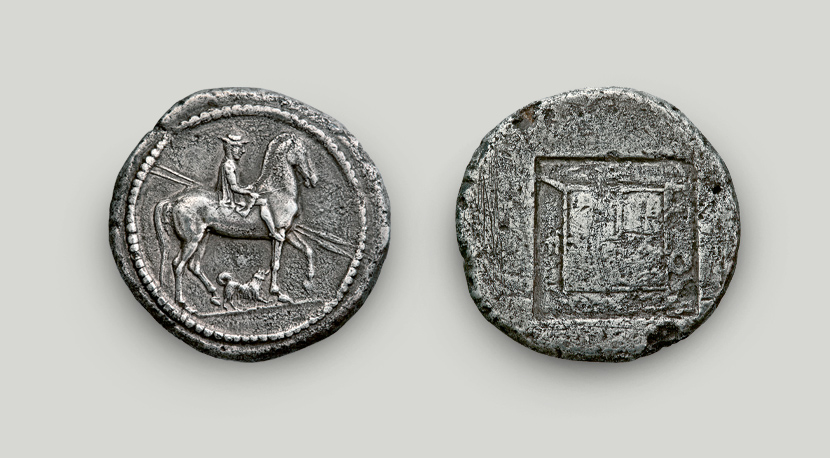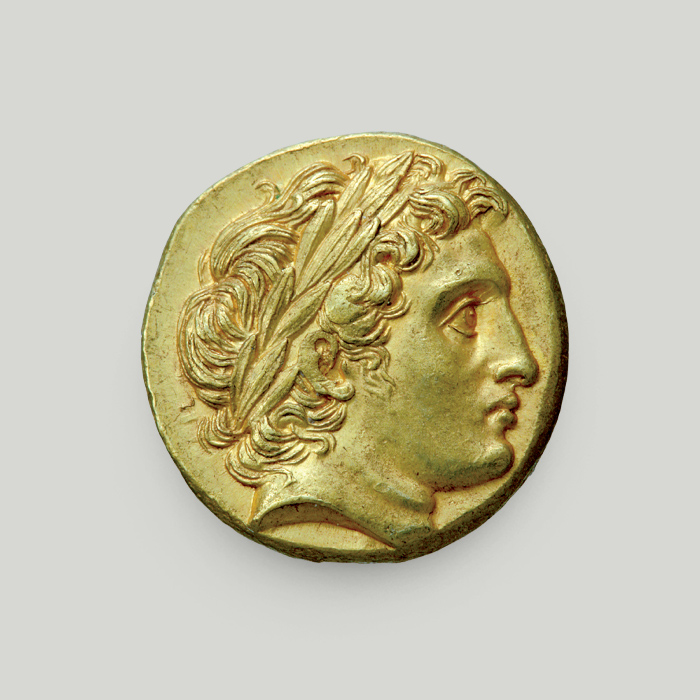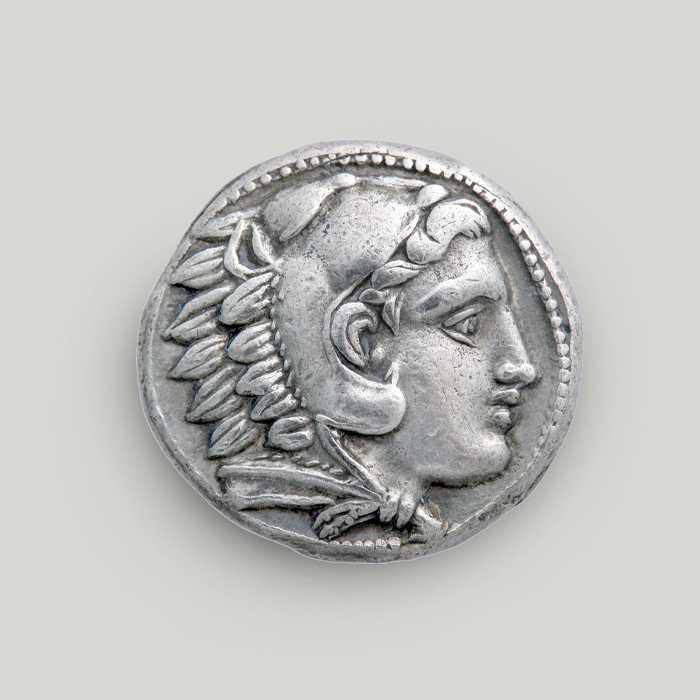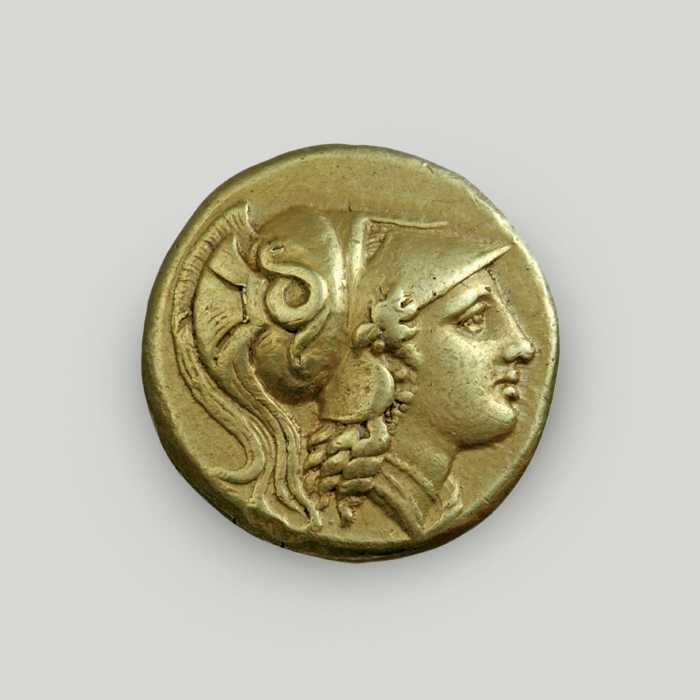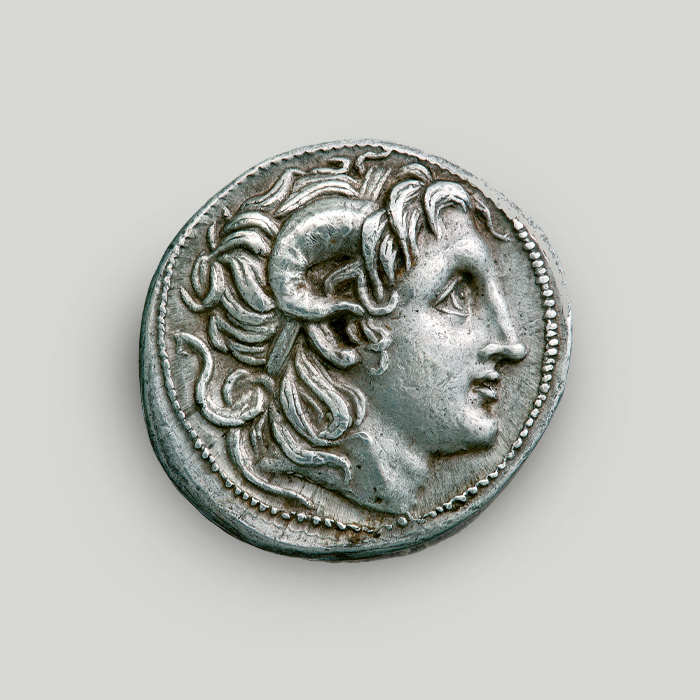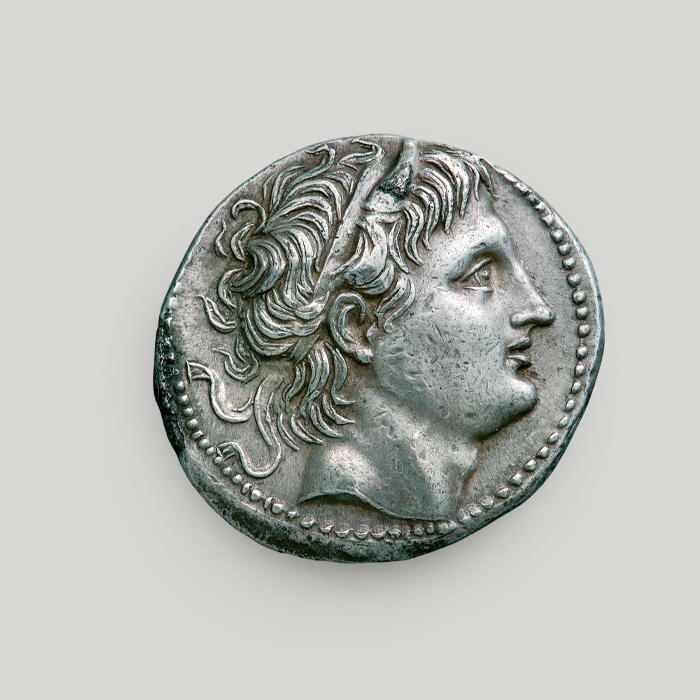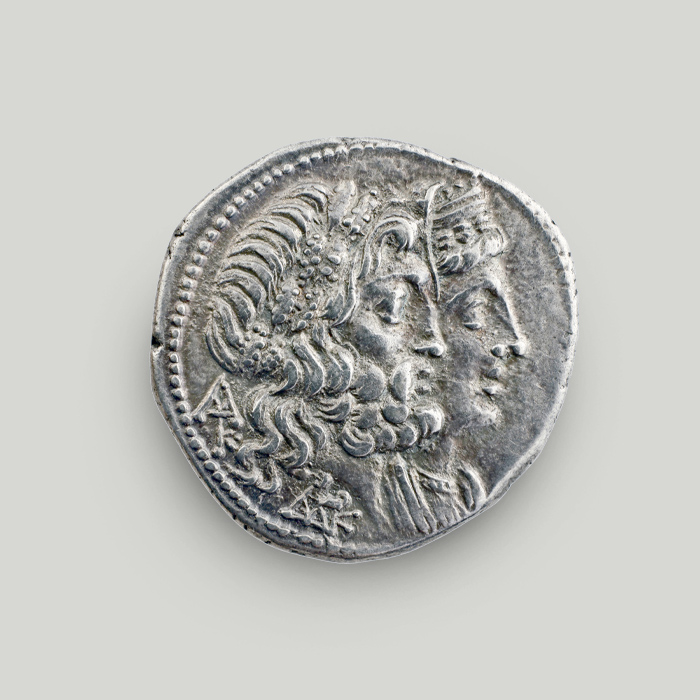Silver octadrachm of Alexander I, Macedon
This silver octadrachm belongs to 1 of the 3 known types of octadrachms issued by Alexander I of Macedon and the only one currently in Greece. Alexander I was the first Macedonian king to issue precious silver coins with his name in the legend. His coins mark the beginning of royal coinage in Macedon.
Obverse
Macedonian horseman wearing a petasos (sun hat) and holding 2 spears. A dog is depicted walking next to the horse.
Reverse
The legend reads ΑΛΕΞΑΝΔΡΟ (of Alexander) struck along the sides of an incuse square.
Alexander I of Macedon
Alexander I, the son of Amyntas I, ascended the throne of Macedon when the region was still under Persian rule.
During the Persian Wars, he was forced to cooperate with the Persians, who used Macedon as a base of operations for their campaigns against the cities of southern Greece.
Even though Alexander’s kingdom was not a satrapy per se, the empire still had a firm hold on it. Following the kingdom’s release from the Persian rule (479 BCE) and with his relations with southern Greece restored, Alexander I secured his place on the throne of Macedon.
A friend of the Greeks
As a Greek king under Persian rule, he provided the Greek generals with invaluable information on the intentions of the Persians.
He was the one who advised the Greeks not to oppose the Persian army at the Valley of Tempi between Macedonia and Thessaly. He also revealed Persian military commander Mardonius’ plans before the battle at Plataea (479 BCE). These actions earned him the title “Philhellene” (fond of the Greeks).
Alexander I stood out as a political figure of his time and became immensely popular all over the Greek world. The Athenians honoured him as their benefactor and he was the first to receive the honorary title of proxenos (consul) by the city. After his claim of Greek descent was proved to be true, the judges of the Olympic Games, called hellanodikai, allowed him to participate in the Games, possibly in 504 BCE.
He also became a patron of historians Herodotus and Hellanicus, and poets including the likes of Pindar, Bacchylides and Simonides.
The first royal coinage of Macedon
Alexander I was the first Macedonian king to issue precious silver coins with his name in the legend.
After the Persian troops left the land for good, Alexander I significantly expanded his kingdom. This resulted in important financial benefits, including the command over the silver mines in Visaltia, Northern Greece, close to Lake Prasias. The first royal coinage of Macedon was minted at that time.
As he was now in command of the mines, he adopted an effective monetary policy that he followed methodically. He implemented 2 weight standards: the Thraco-Macedonian and the southern-Greek standard. This system allowed him to promote the use of his coinage outside the confines of his kingdom’s market.
The silver octadrachm today
The silver octadrachm of Alexander I of Macedon is one of the 3 known specimens of this type issued by the king.
At present, the only specimen known in Greece belongs to the Alpha Bank Collection.
The warrior horseman
Alexander I adopted the theme of the warrior horseman as the type on the obverse of his coinage.
To some, this depiction represented a capable and ambitious king. However, the depiction of the king belongs to a later period.
Fractions and etymology
As suggested by its name, the octadrachm equalled 8 drachmas. Each drachma equalled 6 obols.
Before the invention of coins, people used iron spits of 1-1.5 meters in length for their daily transactions.
The spit was called ovelos, and 6 of them were considered a standard handful. This handful was later dubbed “drachma”, as it could be grasped (drattomai in Ancient Greek) in a person’s fist.
When coins started to circulate, the word ovelos (the previously used spits) changed to ovolos (“obol” in modern numismatics) and was used to denote the value once held by 1 spit, i.e. 1/6 of a drachma.
The coin in our publications
The silver octadrachm of Alexander I is mentioned in the book Coins of Macedonia in the Alpha Bank Collection (2009) by Dr Dimitra Tsangari. The book discusses coinage in Macedonia. It includes photographs of 171 coins and detailed explanatory texts.
Buy the publication Coins of Macedonia in the Alpha Bank Collection on the Alpha Bank e-shop.
The Alpha Bank Numismatic Collection is not open to the public.
Research visits to the Numismatic Collection can be organised upon request.
Contact us to book your visit.
